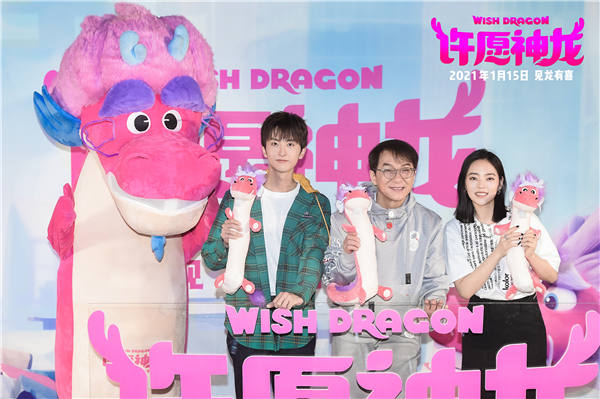

"I have a lot of lines to memorize," says Chan. "As a person growing up speaking Cantonese, it was a bit challenging to speak such a large amount of dialogue in standard Mandarin."
He recalls that the most difficult part was using an exaggerated, yet sincere, manner to perform the dragon eating a packet of shrimp strips, the first time the ancient character tastes the modern snack.
Something of a Chinese version of the genie in Aladdin's lamp, the dragon is depicted as once being an emperor in ancient China. As celestial punishment, he is transformed into a dragon and imprisoned in a green teapot. Only after he helps 10 people to respectively fulfill their three wishes can the dragon return to human form and get into heaven.
The plot sees the dragon stumble upon Ding Siqi, a young man residing in Shanghai, who will become the dragon's last "master". While the dragon has the power to make any wish come true, the youngster refuses great wealth or supreme power, but simply wants to reunite with his childhood friend, a young girl who lives a different life from his.
Actor Niu Junfeng voices the young man and actress Wei Wei brings to life his romantic interest. It's the pair's first time lending their voices to an animated film.
Speaking to China Daily, Niu says: "I'm not a professional voice-over actor. I have tried hard to replicate Ding's gestures and movements in different scenes by acting the same as the character in the recording room. Sometimes, I'm afraid, I probably looked a bit weird and crazy."
The movie is not merely a romantic story. From Shanghai's distinctive alley lifestyle to nosy neighbors and mouthwatering snacks, this Aladdin-esque story set in contemporary China re-creates the captivating buzz of Shanghai.
